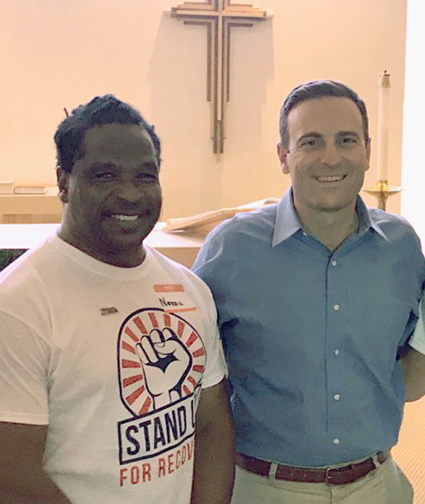‘The black community has an equal right to recover’
November 4, 2018 by Las Vegas Black Image Magazine
Filed under Conversation
Norris Scott examines how a legacy of discrimination leaves too many African- Americans without the resources to defeat addiction.
I grew up in the early 1960s, a period of heavy segregation. I did not have the same privileges as a white child.
As I matured, I saw the barriers. I saw how my teachers lacked the cultural competency to manage their bias in the classroom. When I moved from Georgia to Massachusetts, I was finally able to see — for the first time — how segregation had greatly affected my opportunities.
My school placed me in a special education class. I struggled with this decision, and no one took the time to explain the reasoning. This led to confusion, shame, insecurity, depression, isolation — and later, drugs. All of this reinforced my ideas on segregation in the black communities.
I began noticing that black parents were not invited to parent-teacher meetings — and if they were, the teachers were not welcoming. As a result, the black parents tended to be less informed and less communicative.
I recall hearing my white peers talking with their families about safety and making good choices. For me and my classmates, these conversations simply did not occur. Can you see how this leads to other problems in life?
Coming home feeling less-than and unaccepted created a negative sentiment towards education in general. I didn’t even feel empowered to do my homework.
And why would I? I didn’t have positive reinforcement in my home. My elders lacked education and were struggling with substance abuse. I had to find inspiration elsewhere. The drug dealers and criminals represented success — glamorizing illegal activities, and becoming heroes of a sort. I started pursuing interests that were detrimental to my overall health and well-being.
I often experience divisive thoughts and notice other black individuals experiencing the same thing. Part of this involves buying into the idea that certain things “are for white people.” I’ve noticed myself slipping into this mentality, and I believe this has continued for generations.
It’s time for the black community to stop perpetuating the stigma that we don’t deserve equal opportunity for recovery from addiction. All of this can start with our community educating itself on how to get politically active and #StandUp4Recovery. The black community has an equal right to recover. All people with addiction issues have a right to recover.
All of this is why I got involved with Recovery PAC. I #StandUp4Recovery because I stand up for my right to recover. Will you join the movement?






